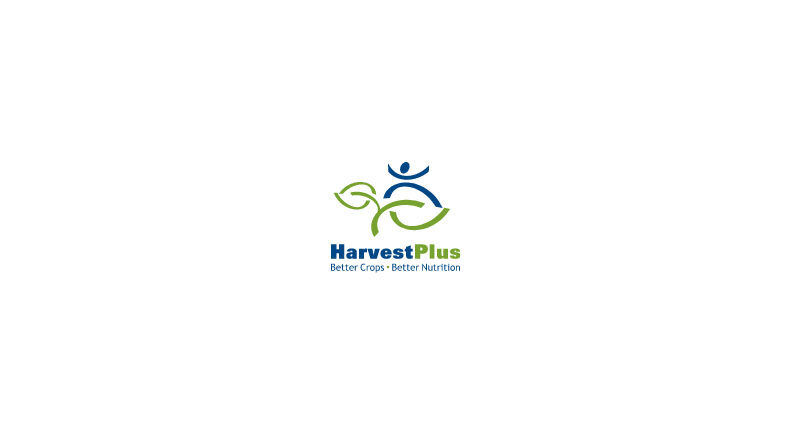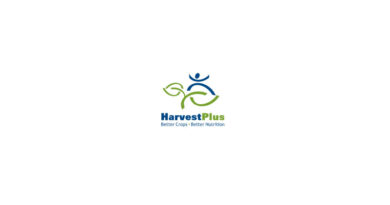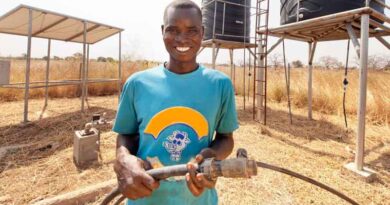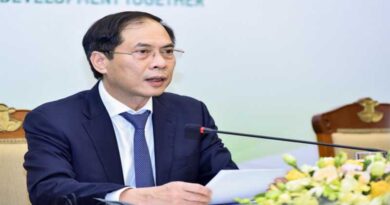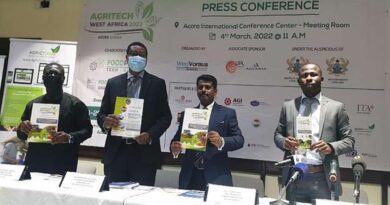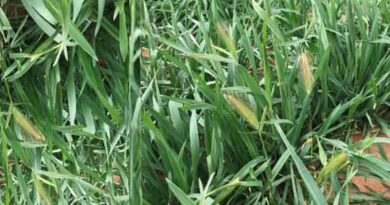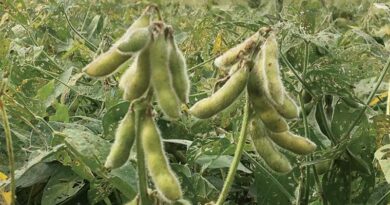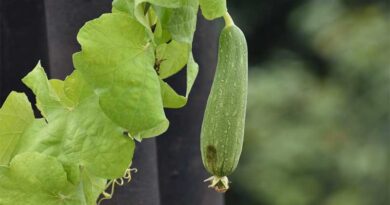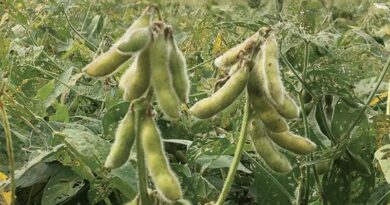Addressing Hidden Hunger through Agriculture: Progress with Biofortification in West Africa
22 September 2021, Africa: The African Development Bank (AfDB), the African Leaders for Nutrition (ALN), and HarvestPlus jointly organized a webinar on 15th September 2021 that attracted over 100 attendees across East, West, and Central Africa. The objective of the webinar was to promote biofortification initiatives and showcase opportunities in West Africa for integration of nutrition into the food systems. The expected outcome was to encourage more countries to include nutrition as a key component of building back better to improve food systems and social protection. AfDB, ALN and HarvestPlus will jointly be convening two more regional webinars for East/Central and Southern Africa to showcase evidence-based approaches to improve nutrition through the alleviation of micronutrient deficiency using biofortification.
The African Leaders for Nutrition (ALN) is an initiative by the African Development Bank (AfDB) and the African Union Commission (AUC) which was endorsed by the Assembly of Heads of State and Governments of the African Union (AU) in 2018 (Assembly/AU/Dec.681(XXX). The ALN Initiative was established to rally high-level political engagement to advance nutrition in Africa. It is led by a group of ALN Champions, comprising current and former Heads of State and Government and eminent leaders with the power to catalyze and sustain high-level political leadership and commitment to increase financial resources to end malnutrition in Africa. Professor Howarth “Howdy” Bouis, the founding director of HarvestPlus and a World Food Prize laureate, is an ALN champion, leading the advocacy efforts to integrate nutrition into the food systems.
To date, 138 biofortified varieties are being tested or are being grown in 38 African countries. Biofortification has been identified as a cost effective and sustainable means of delivering micronutrients to poor and vulnerable populations who depend on the food they grow. Fifteen African countries have already adopted policies and strategies that promote biofortification as a sustainable source of micronutrients.
The webinar kicked off with the first session moderated by Dr. Babatunde Omilola, Manager of Public Health, Security and Nutrition Division, AfDB. Key highlights from this session:
Investments by AfDB on Nutrition: Dr. Martin Fregene, Director of Agriculture and Agro-Industry at AfDB, cited key points on the Bank’s current investment in food and nutrition security in the context of the status of micronutrient deficiency in Africa, and outlined the Bank’s commitments in spearheading political interventions to increase resources to for biofortification and other sustainable nutrition strategies that would lead to increased progress in achieving Continental Nutrition Goals.
Biofortification and Progress in West Africa: The discussions took a deep dive into the technology of biofortification with a keynote presentation from Prof. Howarth Bouis presenting the global status of biofortification and activities across Africa. His key points included the following:
- Shorter term “nutrition direct” strategies are relatively costly and involve recurrent annual costs. Agricultural strategies take longer to have impact, but treat the underlying cause of poor quality diets, are more sustainable and resilient, and are lower cost (in time avoiding annual recurrent costs).
- For example, more than 10 billion vitamin supplements (a nutrition direct investment saving millions of lives), costing 1-2 USD per child, have been distributed over the past 20 years. The same costs continue, year after year.
- Food staples are the base of the diets of poor households which are consumed at maximum levels already; biofortification increases the density of nutrients in these food staples at no extra cost to consumers.
- Household incomes must be increased and food prices must be lowered to increase the quantities consumed of non-staple foods; it is recommended to increase the supply of key nutritious non-staple foods (which vary by country), thus lowering the price, where supply can be increased cost-effectively (for example, farmer adoption of hybrid vegetable seeds).
The focus then turned to activities in West Africa with a presentation of specific activities and the current state of implementation and adoption of biofortification in Nigeria by Dr. Yusuf Dollah, HarvestPlus Nigeria Maize Specialist. Key presentations were made that highlighted the latest nutrition studies supporting biofortification and the role of the private sector in creating sustainable value chains.
Dr. Jonas Chianu, the manager for the Transformation for African Agricultural Technologies (TAAT) at the African Development Bank, talked about the biofortified crops being supported and funded under the TAAT initiative.
Dr Ramadjita Tabo, West Africa Regional Director for ICRISAT, described the scaling up strategies along the value chain that should be implemented for biofortification to be adopted throughout the region.
Country investments in Biofortification and Policy: Senator Muhammed Bima Enagi, Vice-Chairman of the Nigerian Senate Committee on Agriculture and Rural Development, cited the progress made in Nigeria on policy with the on-going development of the Biosafety Act by the Nigerian National assembly aimed to set a legal framework into research for Biofortification and to regulate import/export of biofortified foods
Mr. Seth Osei-Akoto, Director of Directorates of Crop Services (Crop Fortification), Ghana, outlined activities and adjustments made under the COVID-19 pandemic and stressed the need for multi-sectoral collaboration to sustainably scale biofortification and the vital role Non-Governmental organizations (NGOs) play in the advocacy and sensitization of Biofortified crops
Lessons on Food Fortification: Participants also had the opportunity to learn more about food fortification in Africa and in West Africa specifically from Nutrition International’s Director for Africa, Dr. Richard Pendame who highlighted the successes of Large scale food fortification in areas with high population coverage.
Senior Nutrition and Public Health Advisor, Dr. Ahmed Kablan provided insights on USAID’s Large Scale Food Fortification (LSFF) initiative and their commitments in developing the LSFF Result framework to provide a road map for coordination and complementarity with research, Governments and other actors as well as putting in place central LSFF mechanism for support. See all presentations here.
Q&A Session
The scene was set for the Q&A session by Ms. Paulina Addy, Director, Women in Agricultural Development Directorate Ghana who spoke about scaling industrial fortification and the need for investment in Infrastructure and regulation for food fortification.
Ms. Esi Amoaful, HarvestPlus Board Member and Nutritionist engaged participants in the Q&A session and several insights were captured touching on the need to include a resilience consideration with the onset of the COVID pandemic that brought focus into Nutrition sensitivity and sustainability of food systems. A vital insight was the need for gender equitable roles and gender consideration to build a holistic approach on nutrition.
Questions from participants indicated their level of interest in being part of the solution and joining together with leadership to reduce micronutrient malnutrition in the region.
Resolutions and Recommendations
The speakers, supported by the participants, agreed that time was ripe to scale biofortification in all the West African countries and provided some recommendations moving forward:
- Scaling up of Biofortification requires investment which is needed to jump start processes in countries to advocate for adoption by across the value chain to the consumers.
- Partnerships are key. There is a gap in reaching the target number of small scale farmers and partnerships between AUC, RECs and other institutions are needed to do so. Programs like TAAT will be looking at demonstrations to showcase the benefits of these technologies
- Malnutrition is a major problem in Africa and biofortification can address this. Global leaders have to ensure a healthy population by advance Agricultural approaches that can focus investment on Biofortification
- Treatment of the effects of malnutrition does not address the underlying causes of malnutrition which leads to the need to spend on recurrent initiatives. Sustainable approaches like staple crop biofortification are needed to solve dietary issues and to stop filling in the gaps by addressing the underlying causes of micronutrient malnutrition
- Nutrition is important and how we address malnutrition is important. Biofortification complemented by food fortification are reliable technologies to address malnutrition around the world.
Calls to Action
1. African Leaders for Nutrition (ALN) in partnership with HarvestPlus will continue to conduct similar webinars in East, Central, and Southern Africa with the aim of advocating for increased attention to addressing malnutrition which would contribute to important dialogues leading to AU summit with Nutrition as the theme in 2022
2. African Leaders for Nutrition (ALN) and Governments in attendance such as Nigeria and Ghana to lobby all governments to make policy and legislative efforts to embrace biofortification and to increase investments in addressing underlying causes of malnutrition and not treating the effects of malnutrition
3. West African Governments under the leadership of ECOWAS to embrace biofortification to support production of foodstuffs with increased mineral and vitamin content that could beneficially impact the health of consumers
4. Fortification partners to use global platforms such as the upcoming United Nations Food Systems Summit (UNFSS) on September 23, 2021 and the Tokyo Nutrition for Growth Summit, 7-8 December, 2021, to continue to highlight malnutrition as an issue and urge global leaders to embrace biofortification and food fortification as sustainable investments for a healthy population

